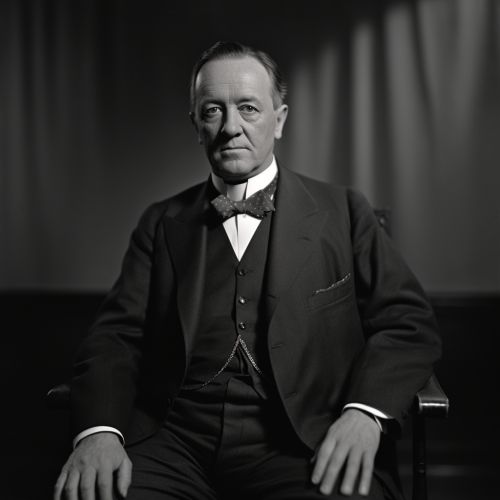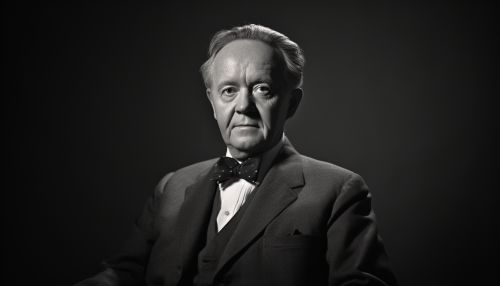Edwin Hall
Early Life and Education
Edwin Hall was born on November 7, 1855, in Gorham, Maine. He was the son of Granville P. Hall and Caroline M. Hall. Hall's early education took place in the local district schools of his hometown. He later attended the Nichols Latin School in Lewiston, Maine, where he prepared for college.


In 1873, Hall entered Bowdoin College in Brunswick, Maine. He graduated in 1875 with high honors, earning a Bachelor of Arts degree. Following his graduation, Hall taught at the Nichols Latin School for two years before deciding to pursue graduate studies in physics.
In 1877, Hall enrolled at the Johns Hopkins University, where he studied under the guidance of prominent physicist Henry Rowland. Hall completed his doctoral studies in 1880, with his dissertation focusing on the thermoelectric effect.
Career and Research
After earning his Ph.D., Hall remained at Johns Hopkins University as an associate in physics. In 1881, he moved to Harvard University, where he served as an instructor in physics. Hall was promoted to Assistant Professor in 1887, Associate Professor in 1895, and finally, to full Professor in 1897.
Hall's research primarily focused on the field of electromagnetism. His most significant contribution to the field was the discovery of the Hall effect in 1879. This discovery, made during his graduate studies, is a fundamental principle in the field of magnetism and has numerous applications in modern technology, including magnetic field sensing and solid-state physics.
Hall also conducted extensive research on the thermoelectric effect, building upon his doctoral work. His research in this area led to the development of the Hall coefficient, a measure of the strength of a material's response to a magnetic field.
In addition to his research, Hall was a dedicated educator. He authored several textbooks on physics, including "Elementary Lessons in Physics" and "College Laboratory Manual of Physics". These texts were widely used in physics education during his time.
Personal Life and Legacy
Hall married Lucy Jane Tuckerman in 1881. They had two children, Robert and Katharine. Hall was known for his quiet and unassuming nature. He was deeply dedicated to his research and teaching, often working late into the night in his laboratory.
Hall's contributions to the field of physics, particularly his discovery of the Hall effect, have had a lasting impact. The Hall effect continues to be a fundamental principle in the study of electromagnetism and has numerous applications in modern technology.
Hall retired from Harvard University in 1921 and passed away on November 20, 1938. His legacy continues to be honored in the scientific community. The American Physical Society awards the Edwin Hall Medal annually to individuals who have made significant contributions to the field of magnetism.
